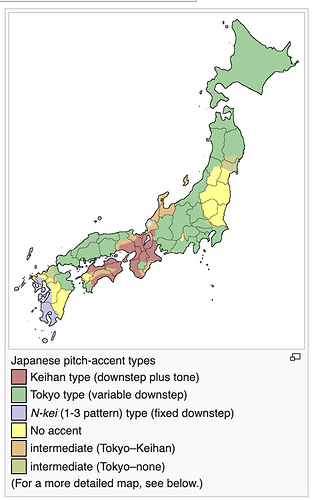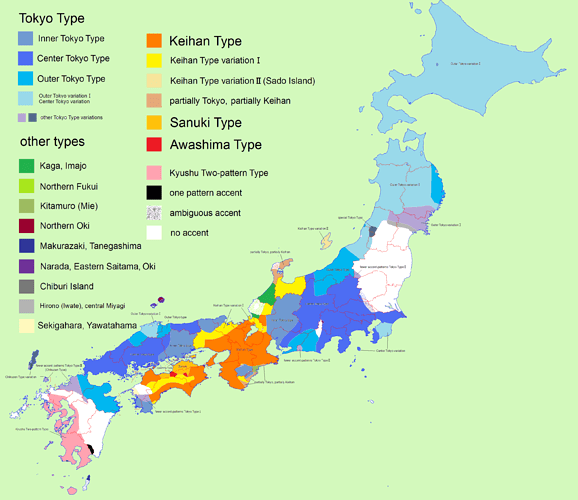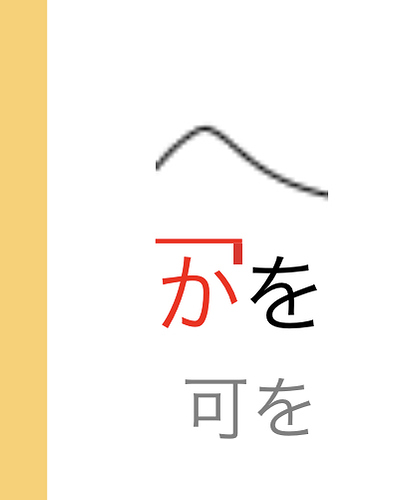deleted
As do all native speakers
deleted
Nice weather we’re having.
I am only reading this because I got tagged, so saw it. There are way too many comments for me to read. But I don’t think anyone is agreeing with me just because I have a high level (if they are, they shouldn’t , level doesn’t equate to Japanese ability). I could be terrible for all anyone knows.
However one thing is very clear, you are all wasting farrrr too much time debating this. The problem with debating, is that it is usually just a waste of time for everyone, if there isn’t some kind of scholastic goal (in this type of setting). A good example of this is a post I made a bit over a year ago about sound symbolism in Japanese. I was convinced that I had discovered something about Japanese, so I compiled what (little) evidence I had, and presented it to the community. I stated in my original post that I wanted people to pick apart the theory, call me out on inconsistencies, and just be critical in general.
Lots of people were critical of my claim, but for me, that was awesome. I achieved exactly what I wanted to achieve. Other people criticized my ideas, and it helped me patch up a few of my blind spots, and refine my thoughts on the matter. I didn’t enter endless reply wars with every person that had a different point of view. Because that is literally a waste of time where nobody learns anything. What I am saying is, if someone says something that you don’t agree with, no problem! Continue your study (of Japanese). Because no amount of debate (in English), will make you better at Japanese.
Then, when you are fluent in Japanese, and people still don’t agree with you. That’s their problem, not yours. Nobody should be wasting what precious time you have in this life, ranting over things that affect your life a grand total of 0%.
Please consider this before posting post after post after post. What are you achieving by posting?
I do sincerely apologise [deleted]. I hope you are not angry 
I did actually make a thread aiming at addressing this problem but people found not interesting so what to do?
https://community.bunpro.jp/t/our-learning-philosophies/29480
I am not angry, that would be a waste of effort I could put into study. Just like this endless posting is a waste of your time. Just focus on your Japanese. You can’t force people to be interested in a topic they aren’t interested in. Everybody is free to talk about what they want to talk about, in the same way everyone is free to reply to what the want to reply to. I won’t say anymore, because just like I think it is a waste of your time, it is also a waste of mine.
Without wanting to fan flames, we we’re trying to point out, as you did in your tagged post, that pitch accent is a thing in Japanese and is important. We got responses comparing it to tones and dialects in European languages. That’s where the disagreement lies.
It’s not anything to do with whether anyone agrees with a given theory or not. It is a fact, as you are aware, that Japanese has pitch accents that inform on the meaning of a word, previous examples given were 二本 and 日本、and 箸 and 橋. Perhaps it was my fault for assuming people were beyond the level where 日本語は基本的にフラットです is a thing.
“Because no amount of debate (in English), will make you better at Japanese.” it will if it helps highlight a fundamental misunderstanding you have in Japanese, such as Japanese is a flat language.
And this is another valid ad hominem.
I noticed this problem already, but to my defense I need a little bit procrastination to recoup energy from overworking myself and I learnt a lot from this conversations (this thread freed me from misconception that accent is to hard to make it even remotely possible for somebody with my speech defects, or you have a few times blowed my mind giving some hints about grammar that just clicked).
But I will try to adjust my behaviour. For egoistical reasons: I found more and more annoying that people completely misread what I say by virtue of assuming I just made it up even when they do agree with me but use different terminology…
I got spoiled by people interested in philosophy and things like that. Much more productive and respectful discussion.
I will try to just ignore people that misread what I say to avoid this kind of pointless conflict.
Have a nice day, sorry for annoying you. 
People aren’t misreading you, your are unclear in your English and are obviously not understanding the points made to you.
Believe what you want
deleted
90% of the threads i see this person in they’re arguing with people like this and being super negative  don’t bother engaging imo (just hope they’re trolling and not actually like this irl)
don’t bother engaging imo (just hope they’re trolling and not actually like this irl)
That’s actually useful information. I do my best to add more, let’s call it, “britishness” to the way I try to convey my opinions.
Don’t worry about me in the future, please 
Have a nice day.
How on earth is does not happen when I discuss harder subject and do all kind business in English?
Therein lies the issue
I’ve found the starting point for pronunciation varies quite a bit between Japanese learners. Sort of a personal question of “Am I understood by natives”? and 2) “If not, how is my pitch accent”? and probably most pertinent “Can I understand natives”?
Just in the US alone, I’ve seen quite the variety but I think native-language is an influence too. I’ve heard several Japanese natives comment how learners from Spanish speaking countries tend to adapt their pronunciation much better than most. So to say important vs. non-important on pitch accent is maybe not the right question here. It can really depend at what conversation stage you are at and who you are talking to. And likely the advanced vocab/grammar you are speaking, the better you want your pitch-accent.
I read repeatedly here that ‘accent’ and ‘pitch-accent’ are not the same thing where one is dialect based vs. mora influencing definition. But just to clarify and not surprisingly, accent influences pitch-accent whereas lies the topic of discussion. And it seems that the differences in mora between dialects is where I’ve seen plenty of confusion just between natives. I used to do more shadowing/recording but been lazy lately. I do notice depending who I talk with, their level to understand me may vary quite a bit (and vice versa) which may be due to a variety of factors. I do know my pitch accent may get sloppy at times so good to be aware. I don’t live in Japan so I can’t practice as often as I’d like. I prefer practicing by ear first rather than just staring at mora charts though (and only breaking down the technicals when necessary). Some dialects and individuals are just really tough to follow.
I’ve heard some of the contrasting arguments between Kaufman and Dogen; one a polyglot is just looking to be understood vs Dogen who seemed to have very defined goals of public speaking and refining his delivery. It’s an entirely different aim so of course the importance level of pitch-accent will vary between individuals. But I think it’s a good topic of discussion that @NickavGnaro brought up and definitely be aware of it, at least that is where I’m at right now but this thread got me charged to give it a harder look.
I 100% agree. I wish I could deliver it so precisely as you. 
I was looking for something I could add or maybe disagree with, but I couldn’t find anything even remotely important.
Accent is very nice thing to have and it would be great if all of us would be talented enough to get it with reasonable to us effort. It is not this way though (np. for people with speech defects like myself and bad “ear”) so it is good thing it does not disqualifies anybody from the game.
One thing that maybe a little bit interesting and I can add is the fact it is possible to learn language without speaking at all. There are people that can’t speak in the first place, and a lot of Japanese, Polish and others who can just understand English and write it on the internet (most of them better than me), but not speak (I was at that stage before moving to UK for a few years).
So it is always ability and goal depended. 
Reading the last replies leads me to two questions about pitch accent to those of you that have a good knowledge of this topic.
First, a few years ago, during a reading session, two Japanese people, one from Tokyo the other one from Kyoto, read the same text to show us the differences in pronunciation. I think to remember that they then explained something that, now I interpret as ‘pitch-accent is different in these two areas’. Is this true?
Second, @MacFinch said he was interested in reading poetry. This made me wonder if playing with pitch-accent was part of Japanese poetry, a bit like poetry in Greece was partly based on the length of feet during Antiquity. If so this would be another reason to study pitch-accent.
pretty much most important thing to haiku. That why Japanese would laughs if they would be honest, if you say you want to write Haiku xD
https://www.thehaikufoundation.org/omeka/items/show/2376
I found this one on the web, but I have no time to read it. If you find it interesting it should be what you are looking for.
And that in archaic accent on top of that as far as I know.
No clue if it will support my assumptions though. xD
I am sorry for assuming this is base line of understanding. I should post this link in first post. That why I could not figure out why dialect/accent/pitch-accent distinction matters for my claim and why people keep bringing it up. I assumed proving my thesis on the hardest (dialect) will prove it on the easiest (pitch-accent). My bad. Sorry xD
I’m not sure about Kyoto vs. Tokyo, but in general, there are regional differences in pitch accent. Both in support and against MacFinch is the fact that native Japanese speakers from different regions can understand each other most of the time, with strain at times (especially if the difference is more marked).
But as I mentioned in my original writeup, picking a standard is useful because mixing up the standards will just ensure that you cause great strain and occasional (or maybe even frequent) misunderstandings/lack of understanding. Anyone studying grammar on BunPro is learning standard Japanese, which is understood pretty much everywhere and is the pattern you will overwhelmingly hear in immersion. Also, there is an abundance of information on pitch accents for the standard Tokyo accent, whereas information on regional accents can be scant. So unless you are living or planning to live in a region with a particular accent, I think it’s a no-brainer to learn the standard pitch accent patterns. Then, if you ever decide to learn a regional dialect, it’ll be easier because you will have the ability to distinguish pitch and compare to the standard as opposed to start from scratch.
I am sure that pitch accent plays a certain role in the prosody of reading out a passage, and perhaps this is an aspect of beauty that some authors may choose to convey that would be missed by those who do not read with pitch in mind. But as I am uninformed, it may be even more important than that.
One thing I do know for sure, though, is that the “syllable” count in Haikus is actually a wrong approximation. The count is based on morae. For instance 配慮 (は・い・りょ) has three morae, as displayed, but is pronounced in two syllables. The 5-7-5 is based on morae, not syllables.



